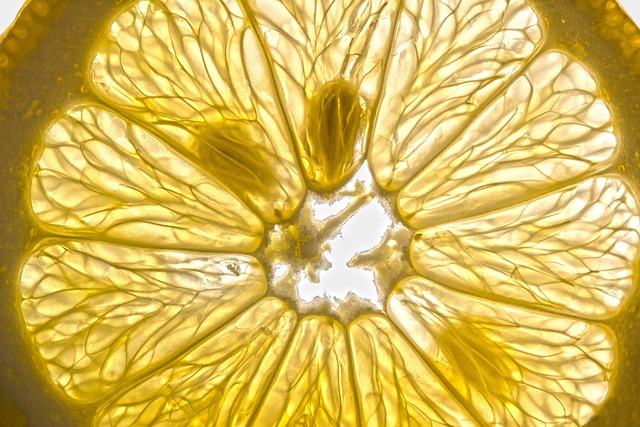Let’s start with a story.
There was a young woman who swore she would never eat another lemon again, for every time she did, she felt as if she was going to have a heart attack. Her chest felt tight and her heart beat rapidly with any physical exertion. On top of that, the right side of her upper body felt like it was being pulled tight – a contraction all along her face, ear, down her neck and into her shoulder. She would also feel very tense during these episodes. This would happen with even a tiny squeeze of lemon into water. Perplexed doctors dismissed her by saying that it was probably musculoskeletal.
Fast forward several years, she had a health crisis – an acute problem that intensified and became chronic. She then knew she had to detoxify her body immediately. However, most detoxification protocols she came across included lemons. So she tried to incorporate them again. The lemons gave her some of those old symptoms, and they also made her fingers feel less circulation and the skin on her palms to be a waxy texture.
Fast forward a year or so of her including lemons here and there. She was still dealing with a debilitating chronic health condition. Lemons would often make her symptoms worse and give her ringing in the ears. Then she came across fruitarianism. She did her best to adopt this diet. Her health issues started to ease and reverse. She was also able to tolerate more lemon without any weird reactions. She got up to at least 1 lemon a day. And that’s when she started feeling really good.
This is an anecdotal example involving one of the most detoxifying fruit. It exemplifies an important point. Fruit is very detoxifying. Often what someone may call a fruit intolerance or allergy is actually a detox reaction. It also demonstrates the need to go all-in when it comes to detoxifying and healing the body. Eating animal products, grains or processed food while also increasing your fruit intake can lead to some odd symptoms, as you would be feeding the pathogens and irritating them at the same time.
That being said, if you do experience allergy-type symptoms when eating a specific fruit, proceed with caution. You may want to avoid that fruit until you have detoxed more. You do not want to have an anaphylaxis reaction.
Now let’s dive a little deeper. Here is a quick video from Jeannette of Ms.FitVegan, who coaches people on their transition to and maintenance of a raw vegan diet. She points out that fruit “allergies” are usually a sign of a very toxic body. She recommends avoiding the fruit for a bit, detoxing more, colonics and a slow reintroduction. She also notes that it could actually be a reaction to pesticides/herbicides instead, and that switching to organic fruit is worth trying.
Some fruit have unique pesticide usage. For example, although bananas have a thick peel that you don’t eat – and one may think there is no point of buying organic bananas, conventional bananas actually have chemicals injected into the tree itself (systemic dispersion). So even without eating the peel, you are consuming those chemicals. In general, it is best to get organic those fruit that make it on the Dirty Dozen list, while feeling at ease with the conventional (non-organic) fruit that are on the Clean Fifteen list.
Something else to keep in mind is to only eat fruit that are fully ripe. Fruit trees employ deterrent compounds (along with unpleasant taste and mouthfeel) in their unripe fruit to prevent them from being eaten. Unripe fruit hold seeds that have not fully matured to the point where they are ready for ingestion or germination, and the tree doesn’t want you eating it just yet. Thus it might be these deterring compounds that someone is reacting to. For example, eating fresh figs that have not been properly tree-ripened will often make people’s mouths and lips burn, itch or even bleed. Not to mention, cause digestive distress. While fully ripe figs will not.
This article, Healing from Allergies by Anthony William – The Medical Medium (or A.W. as he is affectionately called), talks about how making the right dietary choices can heal our allergies/intolerances. He discusses our flawed premises around allergies and allergy tests, and misconceptions around fruit reactions. He lays the base for understanding the often self-diagnosed ‘histamine intolerance’, where one gets unwanted reactions to supposedly ‘high histamine’ foods or ‘histamine liberators’ including kiwi fruit, strawberries, bananas, papaya, citrus fruits and pineapple. You may want to reassess if you have been operating under the belief that you have a histamine intolerance.
Another article by A.W., titled Fruit Fear, explores the many justifications people use to stay away from fruit. Such justifications being: out of season, hybridization, and fructose intolerance. The latter can help shed some light for those following a low FODMAP diet to heal their intestinal issues – fructose intolerance may not actually be their issue.
If you or someone you know has bad reactions to fruit, hopefully this article brings in a new perspective that will lead to healing this aversion. Feel free to share your fruit intolerance experiences in the comments below. Learning from one another is truly a gift.

Interesting article! I never knew there might be alternate reasons behind a supposed allergic reaction. Thanks!
Glad you liked it! Yeah things get interesting when we step outside the labels that the western medical system throws around.